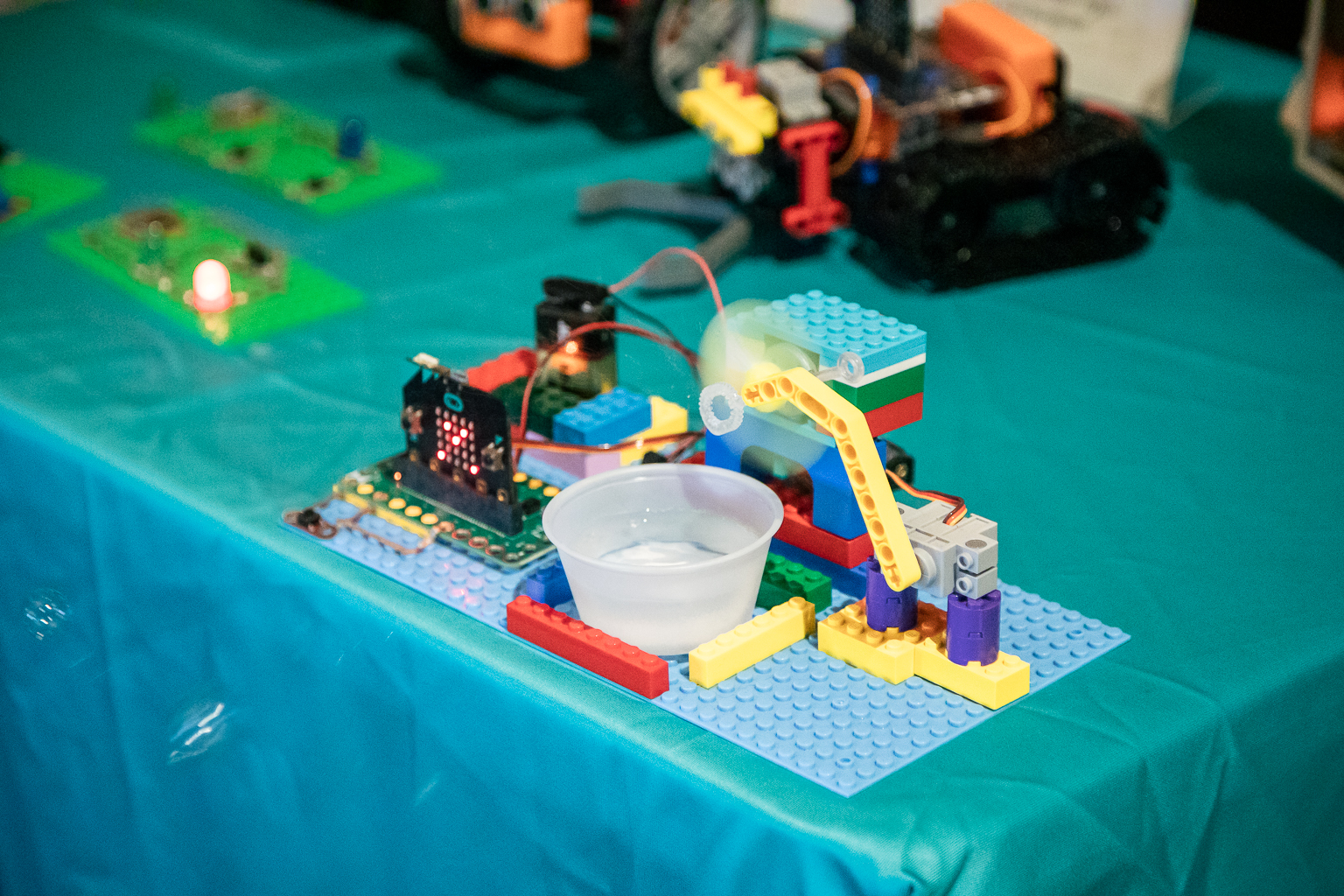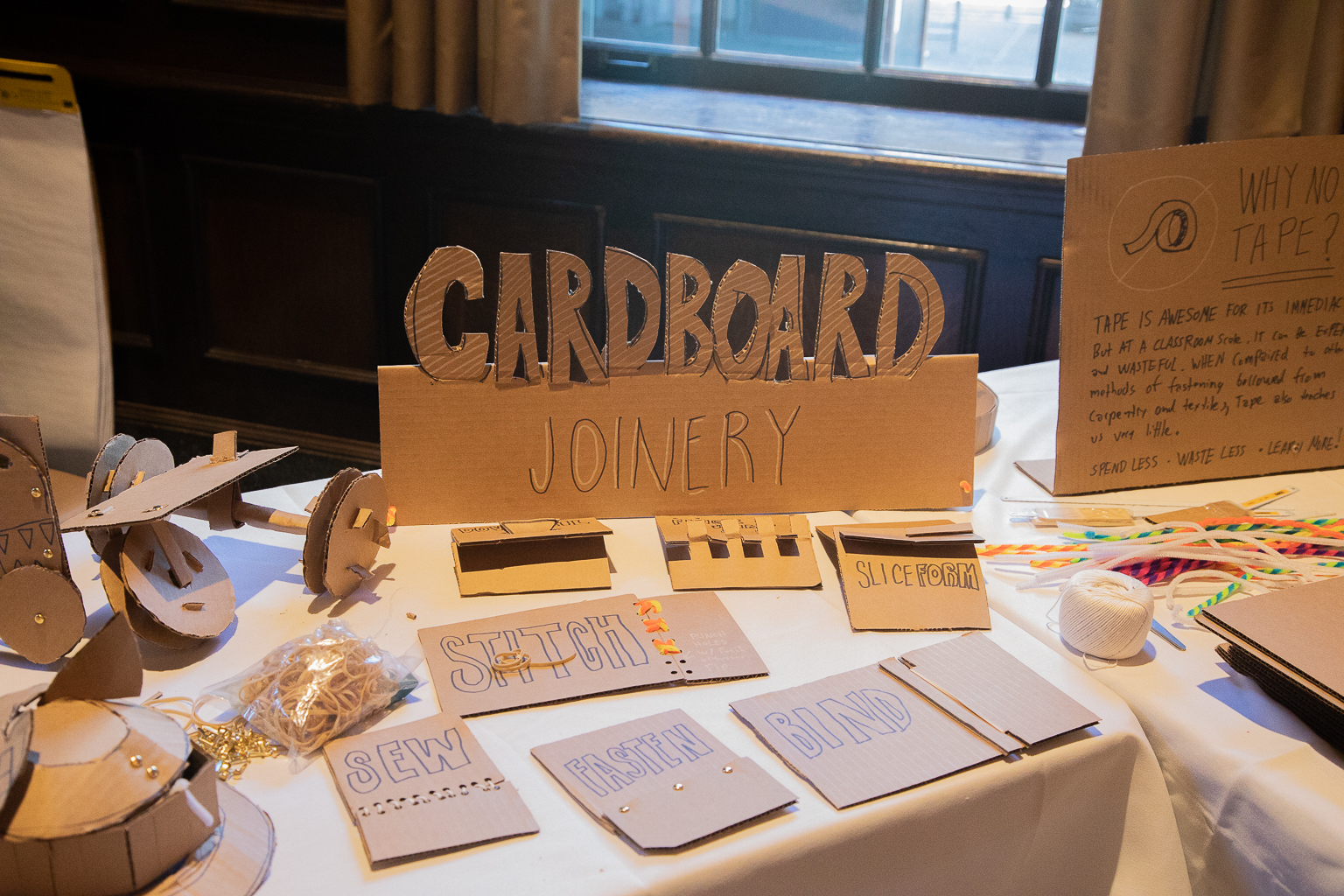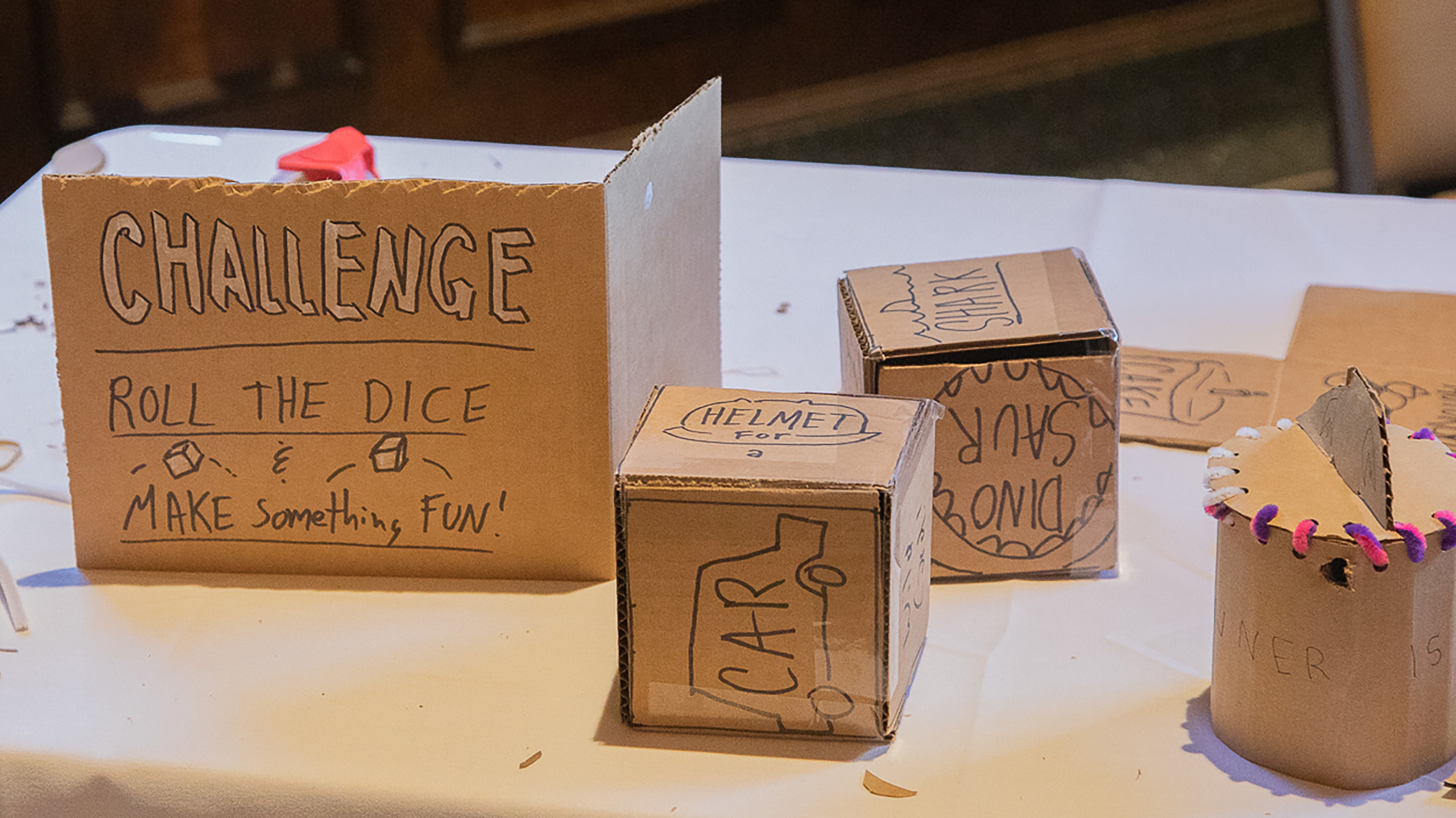The Play Make Learn conference, taking place July 20-21 at the University of Wisconsin-Madison, offers educators hands-on learning experiences and a chance to connect with colleagues from libraries, museums, schools and the wide world of games. The planners define playful learning quite broadly, says Emily L. Nott, a doctoral student in curriculum and instruction. “We have people who are approaching it from a games perspective, from an arts perspective, from an embodied learning perspective, but one of the common factors is that joy is such a powerful ingredient in learning.” Tarah Connolly, a graduate student in Curriculum & Instruction at University of Wisconsin, adds, “Playful learning supports meaningful engagement, promotes agency and facilitates relationships across many educational contexts.”
In the spirit of the six-sided die that belongs to so many of our favorite games, here are six things to know about the upcoming Play Make Learn conference before you register.

1. Location, location, location. UW faculty member David McHugh says the conference is designed to have a Midwestern focus, “because we want to draw in folks from the region and beyond.” (Fun fact: Dungeons & Dragons—the game that taught the world that dice could have more than six sides —was invented nearly 50 years ago in Lake Geneva, Wisc.)
The terrace of the Memorial Union, with its view of Lake Mendota, which was envisioned nearly a hundred years ago as an “undergraduate playground,” makes for an ideal setting for serious conversations and silly activities alike. The conference kicks off with a reception at the Madison Children’s Museum.
2. Workshops that are more play than work. Participants will discover research projects and pilot projects, and have a chance to explore their meaning and applicability in their communities.
Peter (“PK”) Kirschmann, Outreach Learning Design specialist at the UW School of Education’s Professional Learning and Community Education (PLACE), is especially looking forward to Madison-area teacher Sara Milewski bringing her pupils to lead “Embracing the Chaos.”
“This one is truly child led,” he says. “She’s a master educator who’s been doing it for years.” Kirschmann also highlights the presentation by Cindy Kuhrasch of Wisconsin’s Department of Kinesiology and its Physical Education Teacher Education (PETE) program. “She’s very into social-emotional learning,” he notes, adding that a running theme of the workshops is encapsulated by the title of a recent paper from San Francisco’s Exploratorium titled “It Looks Like Fun, but Are They learning?”
3. Keynotes that center equity. The conference features not one but two influential academic figures: Margaret Huettl, director of the Indigenous Studies Certificate at UW-Oshkosh, took part in an update of the video game Oregon Trail that corrected stereotypes and increased historical accuracy. Kishonna Gray, associate professor of Writing, Rhetoric, & Digital Studies and Africana Studies at the University of Kentucky, is the author of Race, Gender & Deviance in Xbox Live: Theoretical Perspectives from the Virtual Margins (2014) and Intersectional Tech: Black Users in Digital Gaming (2020).
4. Rolling up your sleeves (if, that is, your shirts even have sleeves). At Play Make Learn’s Arcade, Nott promises, “You’re not just going to hear about things, you’re getting messy. You can make things and do things and get engaged in needlepoint or building with cardboard or creating tiny cars that are going to race each other.”
Other highlights include an instrument building popup and games from Field Day, a research lab at the Wisconsin Center for Education Research.

5. Letting the games begin. GEE! Learning Game Awards will be presented at the conference. David McHugh, who co-runs GEE! says, “Games let you take on new identities, which affect how you interact with the world. They let you play with and tinker with interesting systems and experience failure without any downsides. I’ve died tens of thousands of times in Mario games, and that is part of the fun.” He envisions this embrace of failure as a way to enrich all kinds of education.
6. The price is right. The organizers want the experience to be accessible to anyone with an interest in playful learning. Kirschmann, a former museum educator and youth worker, recalls that professional learning was hard to come by in his twenties. “We didn’t have a budget for that,” he says, but thanks to the Wisconsin Department of Public Instruction, the Institute of Museum & Library Services (IMLS) and the office of Professional Learning and Community Education at the UW School of Education, Play Make Learn is able to offer registration at $25 for students and $75 for educators.
👉 Read Part 1 of the “Seasons of Play” Series: A Day Trip to Philadelphia Shows What Playful Learning Is—and Isn’t
Play Make Learn 2023: Selected Workshops & Presentations
- “Technology Integration as a Spectrum in Early Childhood Education Settings”
Ju Lim, University of Wisconsin-Madison - “Making STEAM Stick: Supporting Young Learners across Formal and Informal Settings”
Suzy Letourneau, Jasmine Maldonado, Delia Meza, & Franklin Aucapina, New York Hall of Scienc - “The Kids Are Alright: Why We Use Kids to Guide Us, and the Ways It Moves Us to More Purposeful Production”
Anna Jordan-Douglass & Jessie Nixon, Makefully - “The ABCs of Meaningful Play”
Cindy Kuhrasch, University of Wisconsin-Madison - “How Can Playful Learning Foster Equity-Oriented Teaching and Learning?”
Gyeongri Kim & YJ Kim, University of Wisconsin-Madison

Mark Swartz
Mark Swartz writes about efforts to improve early care and education as well as developments in the U.S. care economy. He lives in Maryland.



